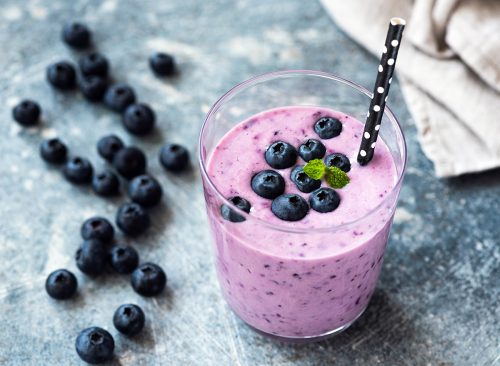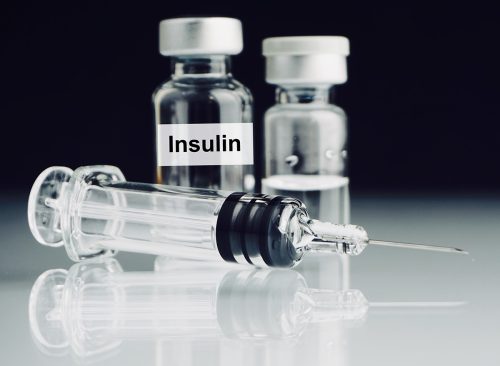21 Proven Ways to Keep Your Brain Sharp After 50
These are 21 science-proven ways to keep your brain sharp as you age.

Experts say the human brain begins to age precipitously at about age 40, when brain cells die off and the volume of the brain begins to shrink. But that doesn’t mean there’s nothing you can do about it. Scientists found that brain health can be boosted with the aid of some simple habits and lifestyle changes—brain volume can be increased, pathways can be changed, and new brain cells can be grown, even into your 90s. These are 21 science-proven ways to keep your brain sharp as you age.
1
Exercise Daily

A 2022 study found that older adults who get moderate levels of exercise—including walking, gardening, swimming, or dancing—have significantly less brain shrinkage than those who are inactive. The difference was equivalent to four years of brain aging, said researchers from Columbia University. Getting regular exercise is the most important thing you can do to keep your brain healthy, says Dr. Sanjay Gupta, the CNN medical correspondent and author of the book Keep Sharp. “Exercise, both aerobic and nonaerobic (strength training), is not only good for the body; it’s even better for the brain,” he writes. “The connection between physical fitness and brain fitness is clear, direct, and powerful.”
2
Keep Learning New Things

In an opinion piece published in Scientific American earlier this year, researchers at the University of California-Riverside described a three-month course they designed for older adults that “enhanced participants’ memory and attention so drastically that their abilities came to resemble those of adults 30 years younger at the program’s end.” Participants were assigned three classes that met weekly for two hours, to learn three new skills. Course options included singing, drawing, iPad use, photography, Spanish language learning and music composition. “Over the course of the intervention, people significantly improved their cognitive scores for memory and attention,” wrote Dr. Rachel Wu. “In a follow-up study, we discovered that the participants had not only maintained their gains but had improved further: their cognitive abilities after one year were similar to those of adults 50 years younger.”
3
Socialize Often

A study at the University of Toronto found that middle-aged and older people who undertook volunteer work and recreational activities were less likely to develop physical, cognitive, mental, or emotional problems. “Social activity is associated with successful aging,” said Mabel Ho, the study’s lead author. “Feeling connected and engaged can boost our mood, reduce our sense of loneliness and isolation, and improve our mental health and overall health.”
4
Eat a Healthy Diet

Several studies have found that consuming high levels of flavonoids—a natural chemical plants produce to keep themselves healthy—can reduce brain inflammation, protect brain cells from injury, and support memory. Some foods rich in flavonoids include dark berries, citrus fruits, leafy green vegetables, tea, and dark chocolate. Another brain booster: omega-3 fatty acids such as ALA (which are found in high amounts in walnuts, flaxseeds and chia seeds) and DHA (found in fatty fish like salmon).
5
Reduce Stress

A 2018 study published in the journal Neurology found that people who lead high-stress lives may experience brain shrinkage and memory loss even before they turn 50. “Higher levels of cortisol, a stress hormone, seem to predict brain function, brain size and performance on cognitive tests,” said study author Dr. Sudha Seshadri, professor of neurology at UT Health San Antonio. “We found memory loss and brain shrinkage in relatively young people long before any symptoms could be seen. It’s never too early to be mindful of reducing stress.”
6
Moderate Your Screen Time

Scientists say that getting too much exposure to blue light, the kind emitted from phones and computer screens, may accelerate aging. A 2019 study published in Aging and Mechanisms of Disease found that blue light can damage cells in the brain and eyes. To avoid this, the researchers recommend wearing blue light glasses and reducing the amount of time you spend in front of electronic screens.
7
Drink Less Alcohol or Abstain

A cocktail or two may help you get out of your head, but regularly overindulging may cause your brain to shrink. Several studies have found that chronic heavy drinking is associated with a reduction of brain volume. Experts recommend no more than two drinks a day for men and one for women.
8
Drink Coffee in Moderation

According to a study that followed 398,000 British people up to twelve years, people who reported drinking more than six cups of coffee a day had a 53% higher risk of dementia and smaller brain volume than people who drank less. But take note: Moderate coffee consumption has been associated with multiple health benefits, including a lower risk of heart disease, several cancers, Alzheimer’s, and Parkinson’s. “As with most things in life, moderation is the key. Very high coffee intakes are unlikely to be good for you,” said the study’s author.
9
Take a Daily Multivitamin With This Nutrient

According to a Harvard study published in the American Journal of Clinical Nutrition, taking a multivitamin for one year was associated with improved memory and cognition—the equivalent of reversing age-related memory loss by three years. “The benefits of taking a multivitamin were maintained throughout the three years of the study,” said board-certified internist Dr. Jacob Teitelbaum. “This confirms numerous earlier studies showing that folate (simple folic acid) dramatically lowers dementia risk.”
10
Treat Hearing Loss

A 2014 study at Johns Hopkins found that older people with untreated hearing loss seem to experience accelerated brain shrinkage. Hearing loss is “the biggest single factor that has been identified as a modifiable—in other words, treatable—contributor to dementia,” said Cambridge neurologist James Rowe. “The ability to have some impact on the number of people with dementia some years down the line is perhaps even greater from tackling hearing loss than from tackling those familiar things like smoking and drinking.”
11
Take Regular Short Naps

A new study shows that taking regular half-hour naps could slow age-related shrinkage of the brain, the equivalent of making you up to seven years younger. For the study, published last June in the journal Sleep Health, researchers at University College London looked at the health information of nearly 400,000 people in the UK between the ages of 40 and 60. The scientists found that people who were genetically predisposed to take naps had larger brains. Larger brain volume is associated with good brain health, including a lower risk of dementia. The researchers wrote they had discovered “a modest causal association between habitual daytime napping and larger total brain volume”. Frequent daytime nappers had brains that were equivalent to 2.6 and 6.5 years younger than those who didn’t nap.
12
Meditate

Not only can meditation reduce stress—which is great for overall health, including brain health—research suggests it can strengthen your memory. One study found that participants who were new to meditation improved their memory after just eight weeks of regular practice.
13
Increase Your Exposure to Light

According to a meta-analysis of 12 studies published in the April issue of Brain and Behavior, increasing light exposure—to the sun, or with a lightbox or sunlight—improved brain function among 766 dementia patients. “Phototherapy with bright light, as is used for treating seasonal affective disorder, significantly improved cognition,” said Teitelbaum. “Lower dementia risk was also associated with other ways of getting vitamin D, a deficiency which has been associated with dementia.”
14
Eat Berries

Whether they’re raspberries, blueberries, blackberries or strawberries, “Berries, in terms of what they can do for the brain and some of these certain chemicals that they release, are probably going to be one of your best foods,” said Gupta.
15
Drink Tea

One study from 2020 found that increasing tea consumption by just one cup a day lowered the risk of all-cause mortality by 1.5%. Tea is also a good source of flavonols, a natural brain-boosting chemical found in plants.
16
Improve Your Air Quality

A study that looked at more than 2,200 women between the ages of 74 to 92 found those who lived in areas with greater reductions in air pollution had fewer cognitive problems like memory loss. “We found women living in locations with greater improvement in air quality tended to have a slower decline in cognitive function, which was equivalent to being about 1 or 1.5 years younger,” said the study’s lead author, Dr. Diana Younan of USC. Other studies have linked air pollution to increased dementia risk.
17
Reduce Sodium in Your Diet

“Getting carried away with the salt shaker and consuming frequent packaged or processed foods could contribute to hypertension, or high blood pressure,” says Molly Robinson MS, RD, LD, a registered dietitian who specializes in senior nutrition. “Over time, uncontrolled hypertension can damage small blood vessels in the brain, which can have an effect on thinking and memory.” She recommends following the MIND diet (Mediterranean-DASH Intervention for Neurodegenerative Delay).
18
Avoid or Control Diabetes

“Blood vessels and nerves can sustain damage from diabetes and high blood sugar levels,” says Robinson. “This damage not only raises the risk for dementia, but also heart disease and stroke.”
19
Get Enough Quality Sleep

Sleep is “your (free) secret weapon to refresh and replenish tissues and cells — among them, those of the brain and immune system,” says Gupta. “It also rinses away waste and debris in the brain that can otherwise foment disease, and it strengthens your memories.” Experts recommend getting seven to nine hours of quality sleep each night.
20
Add Walnuts to Your Diet

A 2015 study found that higher walnut consumption was linked to improved cognitive test scores, possibly because they contain a plant-based omega-3 called ALA. They can make a tasty snack or easy addition to a brain-boosting salad.
RELATED: 30 Area Codes to Watch for in Latest Phone Scam
21
Maintain a Positive View of Aging

Researchers at Yale University found that older people who had positive self-perceptions about aging lived 7.5 years longer and had lower rates of Alzheimer’s disease better than people who had a more negative outlook.














